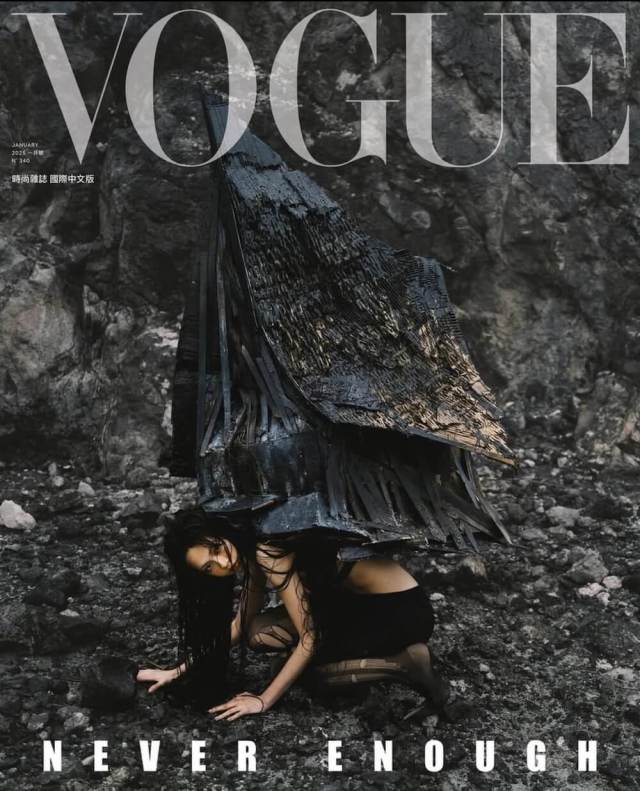Vogue Taiwan is turning heads — but not everyone is impressed. For its January 2025 issue, the magazine tackled overconsumption with a striking cover featuring model Zoe Fang in a 66-pound gown made from recycled clothing and reusable agricultural soil, as noted on Reddit.
The issue, titled "Never Enough," aims to draw attention to overconsumption's role in environmental degradation, but not everyone is convinced of the industry's commitment to sustainability.


The editorial draws inspiration from the 1972 publication "The Limits to Growth," which warned of the consequences of exceeding the planet's carrying capacity.
In an accompanying feature article, writers Nicole Lee and Chen Yu capture the emotional and cultural dimensions of overconsumption, writing: "When the slow cost of fast fashion is ignored by us, when the wardrobe is full but still feels that there is no choice, when the home is filled with packages and the heart still feels empty, the torrent of material has become the wasteland of the soul. The only thing that can truly nourish the soul is to do it consciously."
Editorial director Leslie Sun echoed these sentiments, calling overconsumption a "civilization disease" that depletes natural resources and accelerates the warming of the planet. The imagery envisions a future where humans are forced to become nomads, carrying plants on their bodies due to the collapse of ecosystems.
This isn't Vogue Taiwan's first foray into eco-conscious storytelling. In 2022, its "Heat Wave" issue featured a striking cover of model Peng Chang holding a dust-covered popsicle — a chilling commentary on water pollution. With "Never Enough," the magazine continues its mission to weave sustainability into the fabric of modern fashion conversations.
While Vogue Taiwan's visual statement has sparked dialogue across social media, much of the online discussion has centered around high fashion's role in perpetuating the very problems it seeks to critique.
In the r/anticonsumption subreddit, users questioned whether the luxury fashion industry is genuinely part of the solution or simply deflecting blame onto fast fashion. "High fashion sets the seasonal trends for the rest of the fashion industry … and is a large contributor to why we have such short fashion cycles," one person commented.
They also highlighted some of the wasteful practices within luxury fashion, such as destroying unsold stock to maintain exclusivity. According to the Ellen MacArthur Foundation, every second, the equivalent of a truckload of clothes is burnt or buried in landfill.
|
Which of these factors would most effectively motivate you to recycle old clothes and electronics?
Click your choice to see results and speak your mind. |
"I think high fashion has done a fantastic job at making consumers believe they are getting exclusive quality items … but they're just as circulated as other goods and many many people are over-consuming high and luxury fashion," one commenter said.
However, some defended high fashion, suggesting its environmental impact is comparatively smaller to its fast-fashion counterparts.
"High fashion consumes but nothing like the fast fashion trend exploding right now. … Any hand high fashion has on fast fashion is a fleeting grasp for control over an industry they used to rule and would be far better off without," another Redditor commented.
Another added: "Visually I love it. While I understand the complaints, how is this not better than the standard issue? Kudos to this model and the creative director."
The debate underscores the fashion industry's fraught relationship with sustainability. While fast fashion's rapid production cycles dominate environmental criticisms, high fashion's role in shaping consumer culture and setting trends is not exempt from scrutiny. The "Never Enough" cover has succeeded in igniting conversation, but it also highlights the need for systemic change across all sectors of the fashion world.
Join our free newsletter for good news and useful tips, and don't miss this cool list of easy ways to help yourself while helping the planet.









